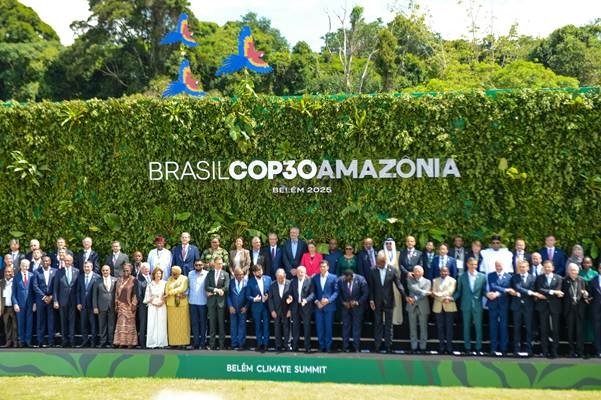Belém, Brazil — India reaffirms its unwavering commitment to equitable and inclusive climate action at the Leaders’ Summit of the 30th Conference of Parties (CoP30) to the UN Framework Convention on Climate Change (UNFCCC), currently taking place in Belém, Brazil, from November 10 to 21, 2025.

PIB
Delivering India’s National Statement, Ambassador Dinesh Bhatia, India’s envoy to Brazil, emphasizes the nation’s long-standing approach to climate action rooted in equity, national circumstances, and the principles of Common but Differentiated Responsibilities and Respective Capabilities (CBDR-RC).
Marking a decade since the Paris Agreement, India expresses gratitude to Brazil for hosting CoP30 and highlights this moment as an opportunity to reflect on global progress in combating climate change and to reaffirm the legacy of the Rio Summit, where the foundation for modern climate governance was laid.
India welcomes Brazil’s initiative to launch the Tropical Forests Forever Facility (TFFF) — an ambitious step toward the preservation of tropical forests — and joins as an Observer, recognizing its potential to strengthen global climate collaboration.
The Indian statement showcases the nation’s ongoing low-carbon development path under the leadership of Prime Minister Narendra Modi, noting that India has reduced its emission intensity by 36% between 2005 and 2020, achieving its revised Nationally Determined Contribution (NDC) targets five years ahead of schedule. With non-fossil power now exceeding 50% of installed capacity and an impressive 200 GW of renewable energy, India emerges as the third-largest producer of renewable energy globally.
Additionally, India highlights the creation of an additional carbon sink of 2.29 billion tonnes of CO₂ equivalent from expanded forest and tree cover between 2005 and 2021. Global initiatives such as the International Solar Alliance, now uniting over 120 countries, continue to strengthen access to affordable solar energy and promote South-South cooperation.
Reiterating concerns over inadequate global ambition, India points out that while developing countries continue to take decisive climate action, the commitments of many developed nations still fall short. The statement urges developed countries to accelerate emission reductions and ensure the delivery of predictable, concessional, and adequate climate finance, along with access to technology and capacity-building support for developing nations.
India calls for the next decade of climate action to be defined by implementation, resilience, and fairness, emphasizing that true climate progress must be guided by shared responsibility, mutual trust, and equitable cooperation under the Paris Agreement framework.
Also Read: From Urban Hubs to Rural Heartlands: Strengthening India’s Education Backbone
